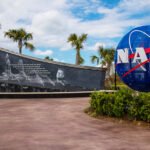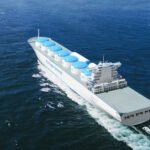The New Zealand flag carrier announced Tuesday that Embraer, Heart Aerospace, and Universal Hydrogen have joined Airbus and ATR as long-term partners on its drive to replace its De Havilland Dash 8-300s with zero-emissions aircraft. According to Air New Zealand’s Mission Next Generation Aircraft programme, a commercial demonstrator is scheduled to fly for the first time in 2026. The Dash 8-300s are expected to be replaced by an aircraft type starting in 2030, most likely one propelled by either green hydrogen or battery hybrid systems.
Kiri Hannifin, the chief sustainability officer of Air New Zealand said that adding Embraer, Heart Aerospace, and Universal Hydrogen as partners will help broaden the technological knowledge being evolved for the potential aircraft of the future. She also mentioned that the team-up is not about selecting a new aircraft but about developing and growing in a combined understanding to take forward the travel era. The selected partners are currently making efforts to decarbonise the aviation industry.

Air New Zealand teamed up with Airbus, joining them in their efforts towards the development of airliners powered by hydrogen.
In order to assist the airline in evaluating and validating aircraft propulsion technology as ideas grow and mature, Air New Zealand has also teamed with Victoria University of Wellington’s Robinson Research Institute. The research centre, a global leader in the creation of power electronics and superconducting machinery, is currently working on the use of these technologies in the aviation sector.
Air New Zealand has consented to become a member of Embraer’s Energia Advisory Group, which provides advice to the Brazilian airframer on its mission to create sustainable aircraft. The group is made up of airlines, lessors, manufacturers, and other aviation industry professionals. As part of the cooperation agreement with ANZ’s Mission Next Generation Aircraft, Embraer will work on fleet requirements particular to the airline’s passenger and freight network, which spans 20 areas around New Zealand, as well as design requirements for complicated missions.
Following the introduction of the ES-30, a 30-seat electric regional aircraft that is intended to replace the 19-seat ES-19 that the Swedish startup announced in 2020, Heart Aerospace has partnered with ANZ. At a meeting on September 15 at Heart’s headquarters in Gothenburg, Air Canada and Saab, a Swedish aerospace and military company, both pledged $5 million to the project.

The selected partners are currently making efforts to decarbonise the aviation industry.
Heart also revealed intentions to develop sizable facilities at Säve Airport in Gothenburg for the advancement of electric aviation technology. The Northern Runway facility will house the business’s offices, production, and flight test facilities as well as give partner companies space in new environmentally friendly structures.
Last year, Air New Zealand teamed up with Airbus, joining them in their efforts towards the development of airliners powered by hydrogen and how it could support the Asia-Pacific airline’s objective to achieve net-zero carbon emissions across its whole fleet by 2050. Air New Zealand then joined Airbus in this endeavour. In accordance with a memorandum of understanding (MoU) signed on September 16, the airline will assess how using hydrogen propulsion would alter its service network, operations, and infrastructure arrangements, and Airbus will provide performance specifications and ground operations characteristics for the new aircraft.
With this new and efficient step towards development, Universal Hydrogen has joined hands in partnership with Air New Zealand. This has brought the company and the potential use of the hydrogen-powered Dash 8 one step closer.



















